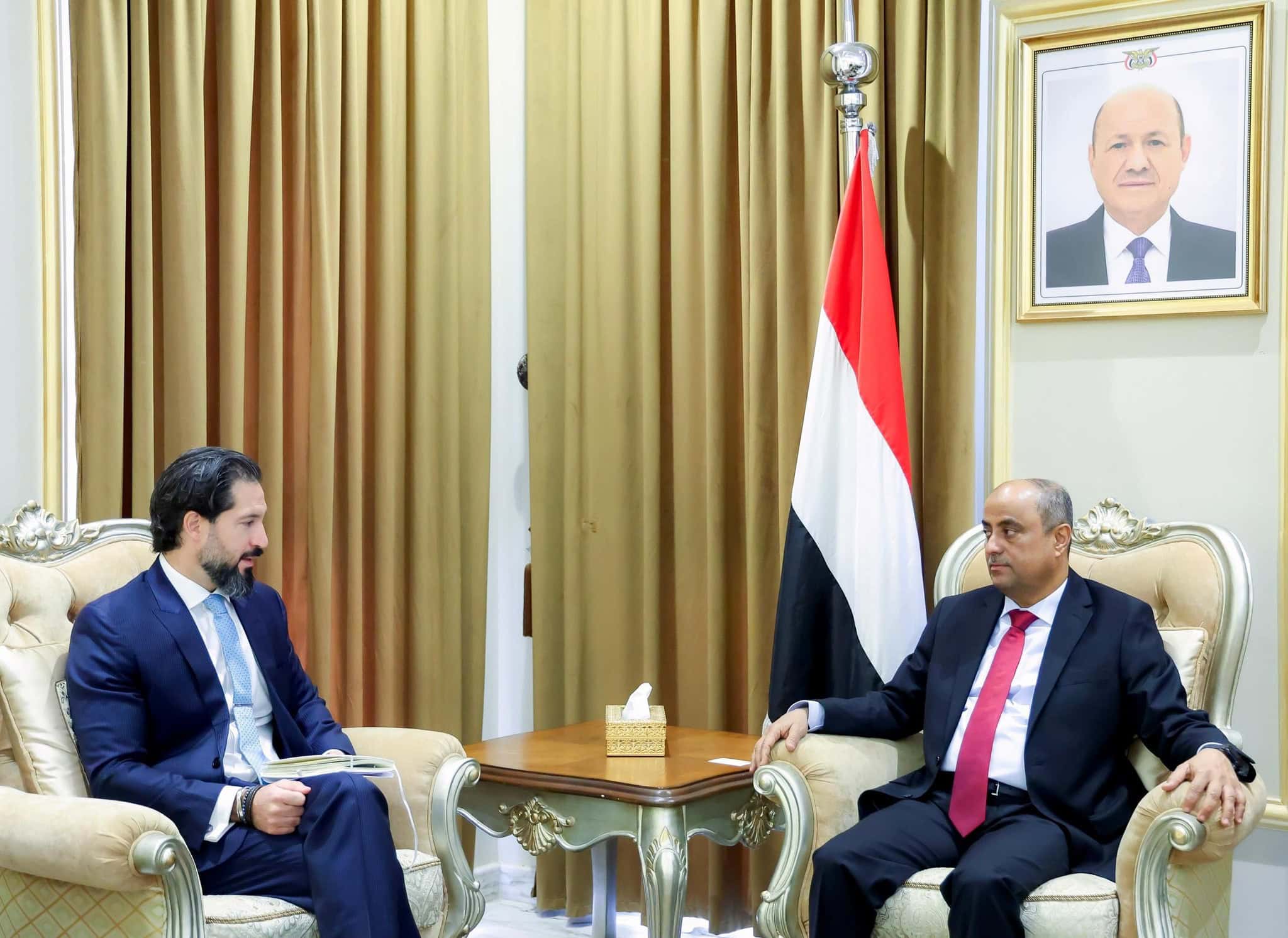
Prime Minister Salem Bin Brik meets with U.S. Chargé d'Affaires Jonathan Bicha in Riyadh on May 7, 2025 (Yemeni Prime Minister's Office Facebook page).
آخر تحديث في: 08-05-2025 الساعة 7 مساءً بتوقيت عدن
|
|
Riyadh (South24 Center)
Yemeni Prime Minister Salem bin Brik stated on Wednesday (May 7) that his government hopes for the resumption of development assistance previously provided through the US Agency for International Development (USAID), and called on Washington to reactivate its suspended projects in Yemen amid the worsening economic and humanitarian challenges.
The remarks came during his meeting in Riyadh with the US Chargé d'Affaires to Yemen, Jonathan Bicha, who congratulated bin Brik on his appointment as Prime Minister and affirmed Washington's readiness to enhance bilateral cooperation and support to the Yemeni government's urgent priorities.
Bin Brik emphasized that restoring US development aid represents a critical priority to improve basic services and stabilize the national currency, as Yemenis face mounting living pressures. He stressed that continued US support, alongside assistance from the Gulf countries, remains essential to overcome the current challenges.
The discussions also covered political and military developments, including the growing Houthi threats to international shipping in the Red Sea. The Prime Minister expressed his government's willingness to cooperate with Washington in implementing the designation of the Houthis as a ’Foreign Terrorist Organization’ by cutting off their funding sources and weapons flows.
The talks additionally addressed prospects for economic and financial cooperation, along with joint efforts to mobilize international support to tackle Yemen's escalating crises.
Background:
USAID has served as the US government's primary development arm abroad, funding humanitarian and development projects in Yemen for years. However, the Trump administration, in its second term beginning January 2025, suspended most USAID assistance worldwide as part of a comprehensive review of foreign aid programs.
The decision has raised significant concerns among humanitarian circles, with warnings of worsening crises in countries heavily reliant on international aid.